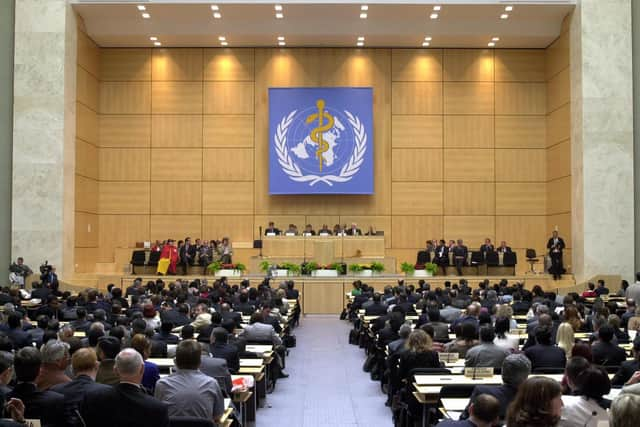Transgender debate in Scotland: Being trans is not a mental illness but the law still reflects that outdated idea – Vic Valentine
If it’s passed, the Bill will change the way that trans men and women can amend the sex on their birth certificate. I was pleased to be invited to give evidence, alongside colleagues Mhairi Crawford from LGBT Youth Scotland and Colin Macfarlane from Stonewall Scotland.
I’m a trans person – neither Mhairi nor Colin are. But all three of us were absolutely clear that there has to be a fairer, simpler process.
Advertisement
Hide AdAdvertisement
Hide AdTrans men and women have been able to amend the sex on their birth certificates since 2005. But the process required to do so is now understood, by trans people, our friends and families, doctors and human rights experts, as intrusive, difficult, and distressing.
One of the main reasons for this is that currently a trans man or woman must include a psychiatric diagnosis in their application to switch their ‘F’ to an ‘M’ or vice versa.
Historically, being trans was considered a mental illness – just as being gay once was. But our journey to have our identities recognised has taken a little longer.
It was in 1990, far too recently, that the World Health Organisation removed ‘homosexuality’ from the International Classification of Diseases – ‘gender identity disorder’ was removed from the mental health chapter of the ICD in 2019.


By requiring a psychiatric diagnosis before trans people can be recognised as who we are on our birth certificates, current law reinforces that outdated idea.
Although trans people experience poorer mental health than the general population, often as a result of the discrimination we face, being trans – who we are – isn’t and shouldn’t be considered a mental health condition.
And so it’s really important that the Scottish Government’s Bill would remove that requirement for a psychiatric diagnosis. This would see Scotland join a growing number of countries, such as Ireland, Norway and Denmark, that allow trans people to be recognised as who we are, and to update our identity documents on the basis of ‘self-declaration’.
This means that rather than needing to rely on medical evidence, trans men and women would be able to sign a witnessed, legal oath, confirming they are living as a man or woman and intend to do so permanently.
Advertisement
Hide AdAdvertisement
Hide AdWhile there is much to support in the Bill, if it passes Scotland will not be world-leading in this area. In particular, non-binary trans people like me, who don’t see ourselves as either men or women, will still have no way to get identity documents that reflect who we are.
There are also concerns one part of the Bill might allow unsupportive family members to take a trans person to court if they disagree with the person’s decision to apply for gender recognition.
The committee will be hearing evidence on the Bill for several more weeks. I hope that by the end of that process, by the time it comes to be voted on some months from now, MSPs will all agree that we need to make the process fairer and simpler, and that we can take an important step forward in how we treat trans people in Scotland.
Vic Valentine is manager of Scottish Trans
Comments
Want to join the conversation? Please or to comment on this article.
